MMM calls for Investing in Mothers to foster social development and justice
27.01.24
UN New York, Commission on Social Development - In a written statement, MMM makes the case for investing in mothers, highlighting the high returns in terms of both gender equality and child rights, and ultimately the SDGs. Empowering mothers means addressing their specific vulnerability to poverty and the 'motherhood penalty' - especially when they are single. It also means recognizing and supporting the unpaid work of caring they do to raise and educate the next generation of workers and citizens, which is indispensable for social and economic development.
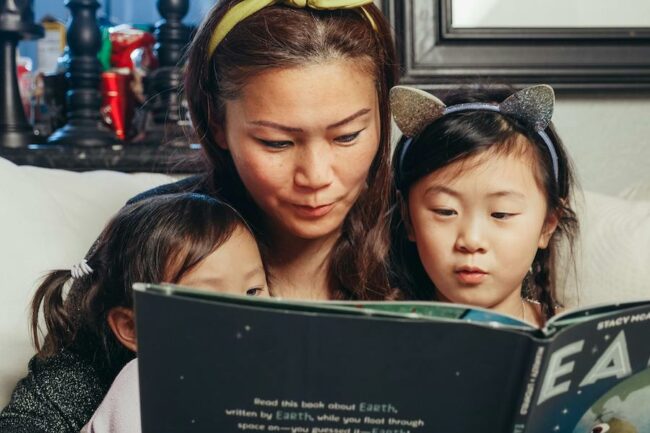
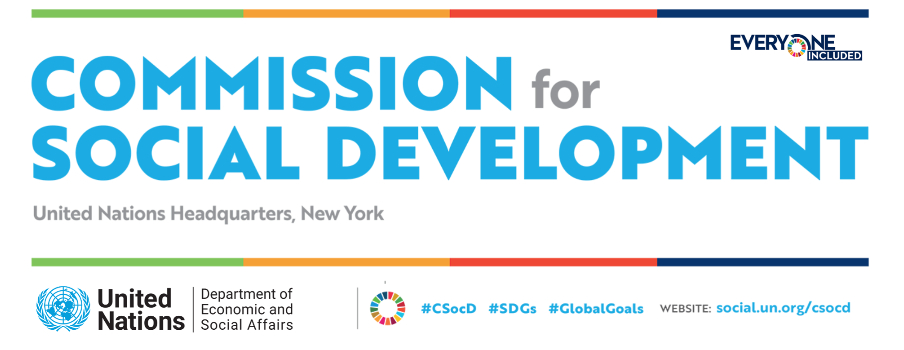
The following is the full text of the written statement we submitted ahead of the 62nd UN Commission on Social Development.
Mothers should be at the heart of social policies: the care and education they provide for their children, plus their particular skills and long-term vision, makes them essential partners for the implementation of the SDGs. If adequately recognised, educated and supported, mothers can be a powerful force for good as changemakers – and positively contribute to the realisation of the 2030 development agenda.
The struggle of mothers and the motherhood penalty
Unfortunately, motherhood has a price: due to the disproportionate share of child care and educational responsibilities they have to shoulder, mothers end up juggling their unpaid care and domestic work with income generating activities, or are unable to do paid work altogether.
Mothers face barriers in accessing decent work, especially when they have young children. According to UN Women, women living with children aged 0-5 have the lowest employment rates, compared to fathers and non-parents. And when they are employed, mothers often work part-time, in lower-paid jobs, and suffer discriminations in wage and promotion: the ‘motherhood penalty’.
As a result, too many mothers struggle financially, an economic injustice which not only results in mother and child poverty, but also impacts the mother’s mental health.
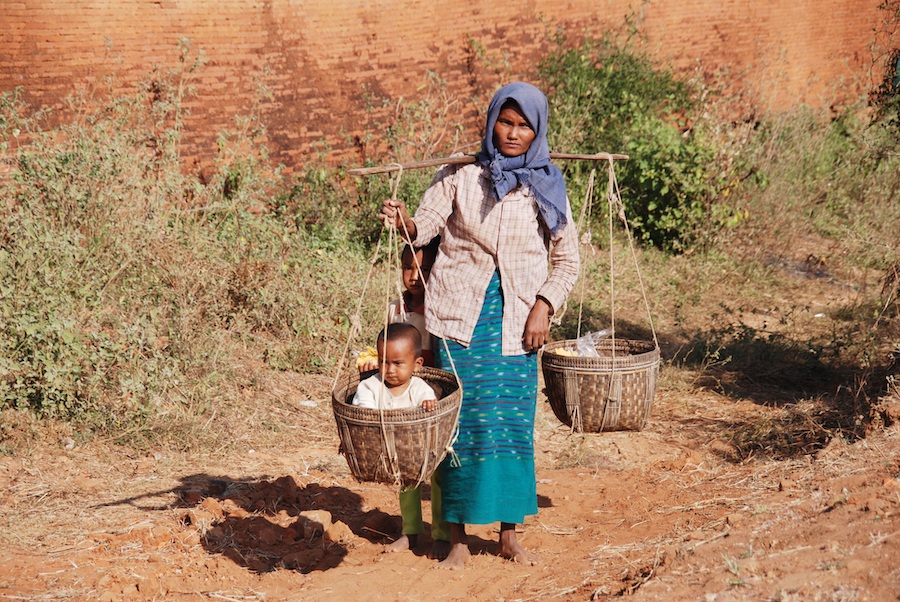
Single mothers are particularly vulnerable in this respect and are over-represented in poverty statistics. Indeed, a single mother does not have much choice: she has to assume full responsibility for both the unpaid work of running the house and raising children, and the necessary paid work to generate an income. A recent Gallup study shows that in the past year, almost half of all single mothers worldwide (44%) struggled to afford food. And if all this was not enough, in many societies single mothers are also socially excluded and stigmatised for being single-mothers, and de-facto excluded from their community and the labour market.
In every country for which statistics exist and are comparable, i.e. mostly high and upper middle-income countries, single-mother households with young children have higher rates of poverty when compared to dual-parent households with young children. Rates and magnitude of this difference in poverty rates varies substantially: Luxembourg stands out with a 50.4% difference, followed by Czechoslovakia (42.4), Canada (40.0) and the United States (37.2).
In the United States, the official poverty rate for families with children headed by single mothers is 31.3%, i.e. much higher than for families headed by a single man (15.5%) and for married couples with children (5.4%). A staggering 37% of single working mothers cannot go one week without pay and meet their family’s financial needs, while 70% cannot go more than one month.
In turn, single mothers’ poverty affects their children, putting them at higher risk of poor academic performance and social-behavioural problems, perpetuating the vicious cycle of poverty. For example, in the US, the rate of poverty of children living with a single-parent (most of them being mothers) is 34.9% compared with 9.5% for children with two parents.
Single mothers are also more likely to struggle with mental health issues, making it still harder to find long-term strategies to help them escape poverty.
The importance of statistics to drive social policy: making mothers’ lion’s share of unpaid care and domestic work visible and counting lone mothers
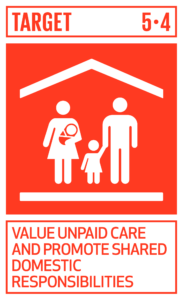 In spite of SDG 5/target 5.4, whose indicator requires Member States to measure unpaid care and domestic work, too many countries have yet to conduct the necessary Time-Use surveys. Current surveys also often fail to disaggregate data along household composition and motherhood. When they do, surveys show that it is women in households with children – i.e. mothers, who really bear the brunt of unpaid care and domestic work, in particular when children are below 5.
In spite of SDG 5/target 5.4, whose indicator requires Member States to measure unpaid care and domestic work, too many countries have yet to conduct the necessary Time-Use surveys. Current surveys also often fail to disaggregate data along household composition and motherhood. When they do, surveys show that it is women in households with children – i.e. mothers, who really bear the brunt of unpaid care and domestic work, in particular when children are below 5.
While the Covid-19 Pandemic did put the spotlight on mothers’ disproportionate share of the unpaid work of caring and educating children and the negative impact this has on their professional lives and finances, regular measurement is needed in order to drive policy-making to better support and redress these inequities.
Another important step in the area of statistics would be to get more realistic numbers of lone mothers, which are on the rise in many countries. According to UN Women, globally nearly 8% of all households are headed by a single parent and 84% of single-parent households are headed by mothers. In absolute numbers, this represents 101.3 million mothers living alone with their children. However, these figures hide important disparities across regions: it is much higher in particular in sub-Saharan Africa (32%) and in Latin America (24%). What’s more, these figures do not tell the whole story: many lone mothers live in extended households, which means they are not counted – and mostly invisible to policy makers. UN Women estimates put a more realistic number of single mothers at twice that figure.
Social policies to empower all mothers
Whether raising their children with a partner or not, parents need support from governments and the wider society to do the vital work of caring and educating the next generation of workers and citizens, in particular during early childhood.
The ‘3R Framework’ – Recognise. Reduce. Redistribute, which is embodied in Target 5.4 of the 2030 Agenda, provides useful guidance for policymakers to address the issue of the inequitable distribution of unpaid care and domestic work, which is at the root of gender inequalities and economic injustice and hardship for women, in particular when they are mothers.
It is imperative to recognise that unpaid care work is fundamental to ensure the sustainability of life, and that it is work – time-consuming yet vital work – that must be done and benefits everyone. It must therefore be adequately supported and more equitably distributed across society with every stakeholder, including the private sector, taking their share of responsibility and costs.
Concretely, such support and redistribution can be provided through:
- time (paid maternity, paternity and parental leaves)
- money (social transfers to families with children, pension credits to parents who care full time for their children)
- and services (high-quality care services for children and older persons, health centres, parenting education, mothers/family centres, educational and professional training facilities, etc.)
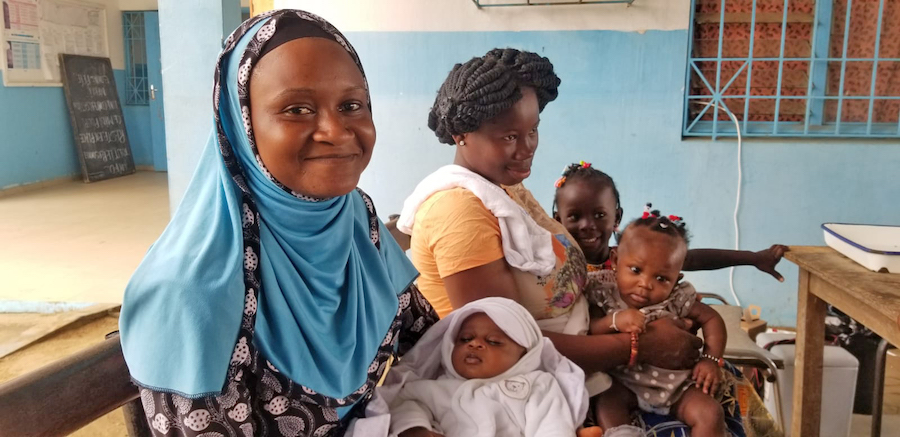
In particular, investing in quality childcare has a proven track-record: a 2017 study led by James J. Heckman, a Nobel laureate economist at the University of Chicago, found that high-quality care during the earliest years can influence whether both mothers and children born into disadvantage lead more successful lives.
Such concrete policy changes would also shape public views and contribute to give visibility and recognition to unpaid care work. Disconnecting basic social protection from formal employment and making it universal would be another way to recognise unpaid work.
In addition to providing training, mothers’ access to employment after a maternity break can be supported by recognising the skills they develop through the work of caring and raising their children, including organisational and life skills which are very much in demand in the world of work. Recognising these skills would help address the motherhood penalty.
Social policies specifically targeting lone mothers
Governments and civil society need to adopt specific policies and establish programs providing the necessary assistance, support and opportunities to single parents to ensure that their children are not penalised or disadvantaged, but can lead lives that allow them to develop successfully to their full potential, and thereby contribute meaningfully to overall future societal wellbeing.
As most single mothers cannot work their way out of poverty without the right kinds of supplemental support, MMM believes in the importance of social investment targeted to help single-mothers as an important investment in human capital.
Here are some steps to support these efforts:
- Developing employment opportunities for single mothers and facilitating their access to decent work: besides policies to stimulate employment (fiscal and monetary), anti-poverty programs should also focus on increasing funding for sectoral training and apprenticeship programs, and opening more local job centres for career guidance and easier access to job opening information
- Promoting single mothers’ access to education by developing skills training programs or increasing financial aid to mothers themselves and organisations focusing on single-mothers’ education. In particular, it is important to target young single-mothers who drop out of school and university when they become pregnant; with 50% of their income going on housing expenses, ⅓ for the education of their children, the rest for food, there is not much left for their own education
- Investing in more accessible and flexible high-quality childcare facilities for every parent: a recent World Bank report highlights the transformative potential of investments in childcare to ‘increase women’s employment and productivity, create new jobs, improve child outcomes, drive economic growth and support a more resilient and inclusive recovery from the pandemic’
Still, mothers should be offered choices and not necessarily pushed into full time jobs to the detriment of quality time with their children. Recognising that caring for one’s own child is vital work, and financially supporting parents to do so is investing in Human Capital. Providing diverse childcare options is also important to address the diverse needs of parents, especially single mothers - Providing targeted social welfare through minimum wage, access to health care or access to housing and food stamps: as most countries have limited resources to dedicate to social protection policies, it is important to prioritise populations most in need, beginning with single mothers – although universal social protection systems should remain the ultimate goal
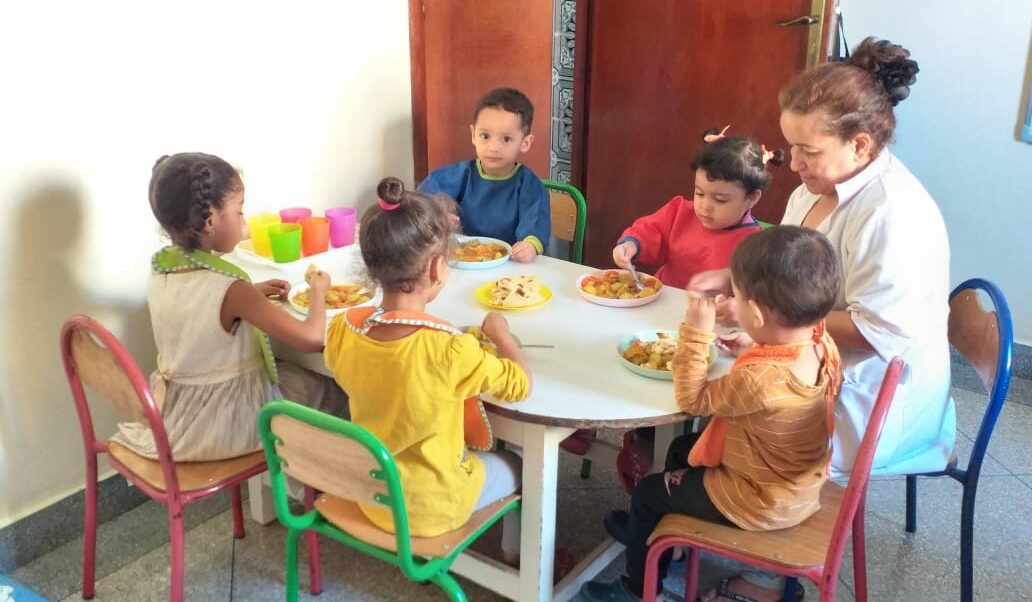 In the past decades, political and public attitude toward welfare recipients including single mothers with young children has evolved, as they are encouraged to find a job. It is, however, difficult to increase the labour force participation of single mothers as they have to combine work and childcare, and often for them, the financial incentives to go to work are not very strong.
In the past decades, political and public attitude toward welfare recipients including single mothers with young children has evolved, as they are encouraged to find a job. It is, however, difficult to increase the labour force participation of single mothers as they have to combine work and childcare, and often for them, the financial incentives to go to work are not very strong.
Working simultaneously on the three fronts – Employment, Education and Childcare – and adding some welfare as a starter would help single-mothers to ensure a more stable situation for their children.
In conclusion
Investing in mothers means investing in gender equality and thriving children – both of which are investments with high returns. And because of their particular vulnerability to poverty, single mothers must be specifically targeted.
More generally, mothers play a central and indispensable role in the functioning of society and the economy. Their contributions go beyond traditional caregiving responsibilities and encompass various aspects of human well-being and social cohesion.
We at MMM are convinced that when adequately recognised, educated and supported, mothers are key levers for change and can be instrumental in the realisation of the SDGs.
We are therefore calling on Member States to prioritise Target 5.4 of the Development Agenda and put mothers – and their unpaid work of caring – at the heart of all policy making.
![]() MMM Statement as a UN Document (E/CN.5/2024/NGO/46)
MMM Statement as a UN Document (E/CN.5/2024/NGO/46)
The 62nd UN Commission on Social Development will take place 5-14 February 2024 at the UN headquarters in New York with the priority theme: ‘Fostering social development and social justice through social policies to accelerate progress on the implementation of the 2030 Agenda for Sustainable Development and to achieve the overarching goal of poverty eradication’.
Breaking the Cycle: Gender Equality as a Path to Better Mental Health
18.03.25
The Council of the European Union has taken a decisive step in recognising the vital connection between gender equality and mental health.
Europe Must Listen to Mothers: Our landmark report heads to the European Parliament
28.08.25
On 22 September 2025, the voices of mothers will take centre stage in Brussels. For the first time, Make Mothers Matter (MMM) will present its State of Motherhood in Europe
Belgian Mothers Face Alarming Rates of Burnout and Perinatal Depression, New EU Survey Finds
03.07.25
Belgian mothers are facing a mental health crisis. According to the State of Motherhood in Europe 2024 survey by Make Mothers Matter (MMM) and Kantar, Belgium reports the highest rates








